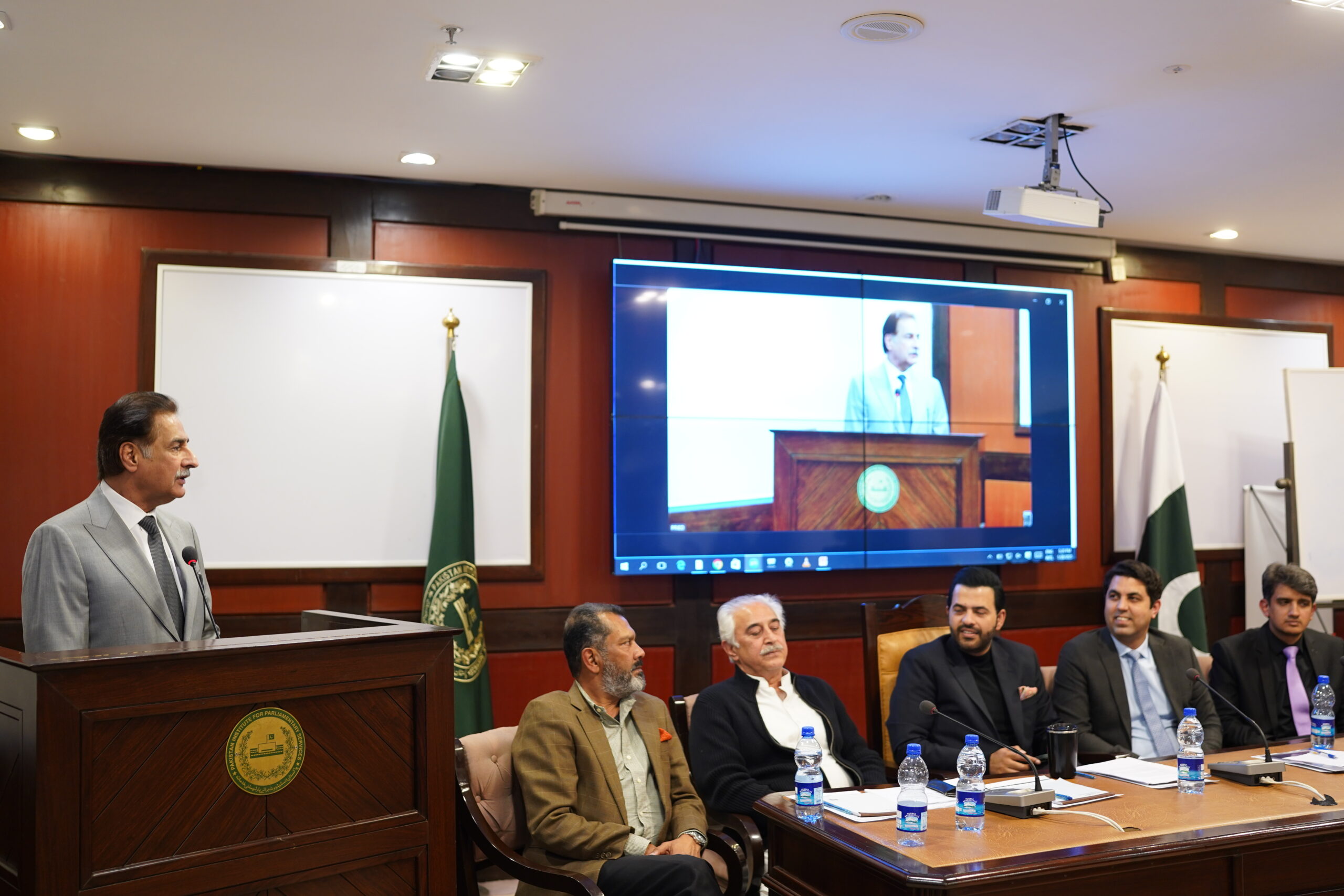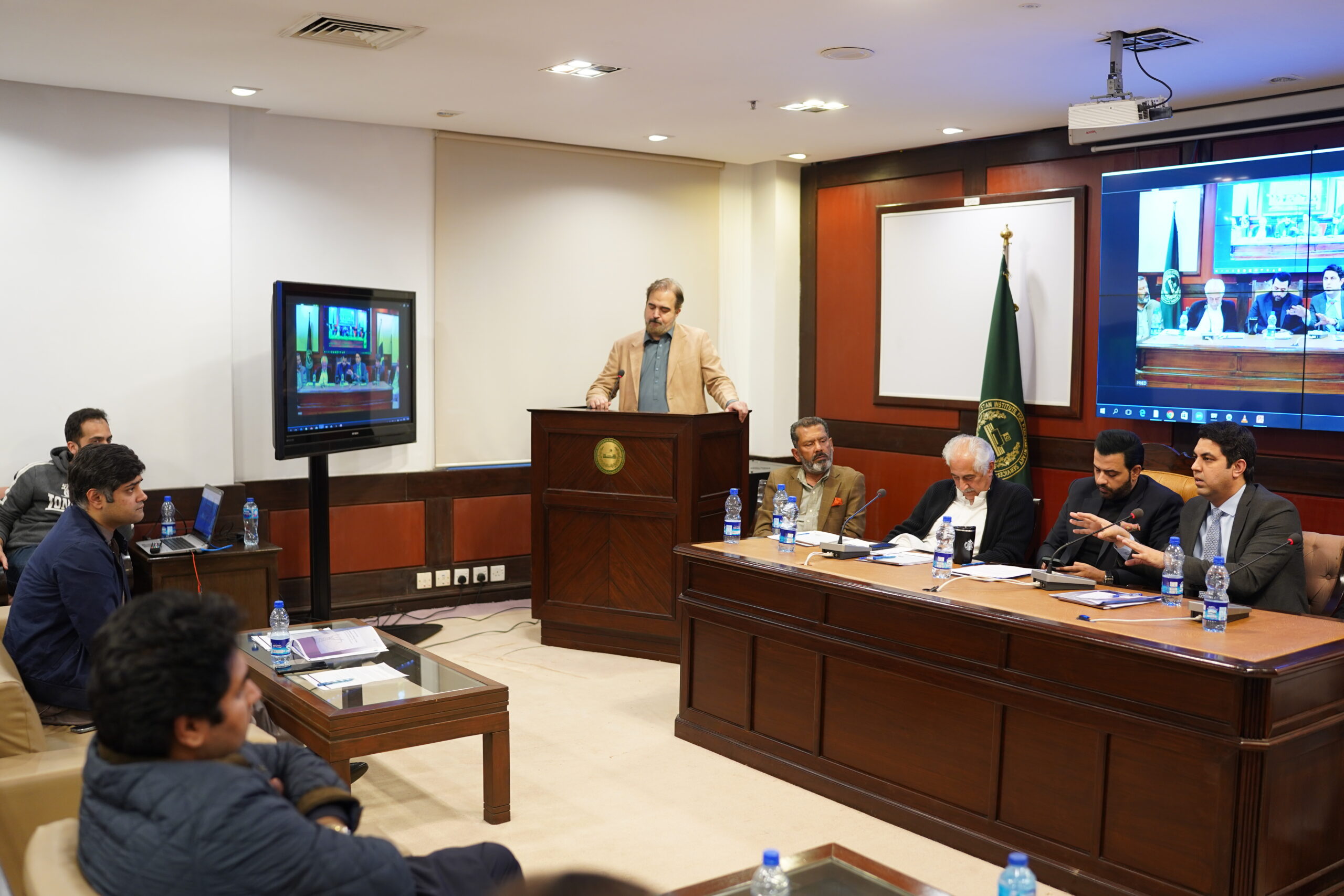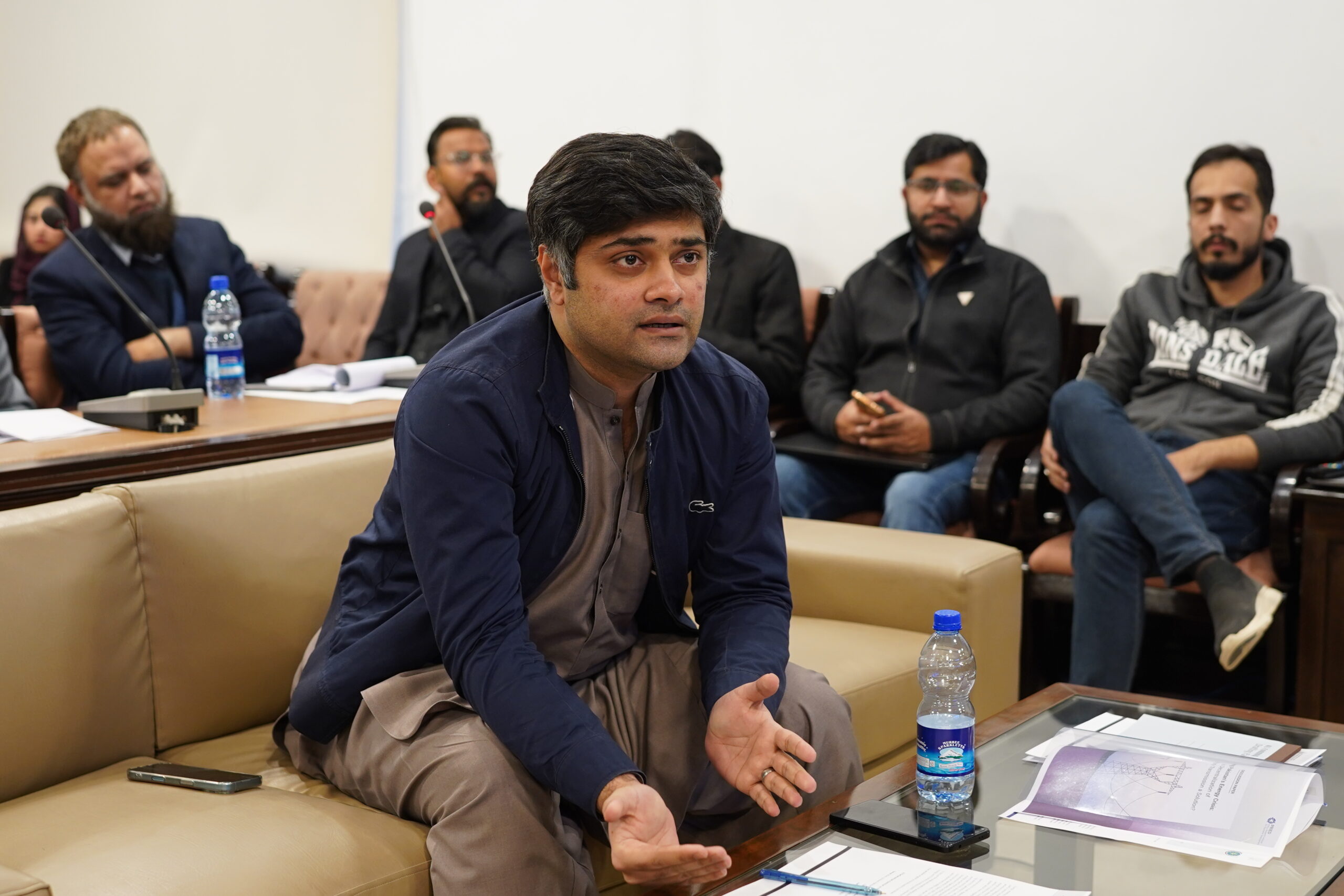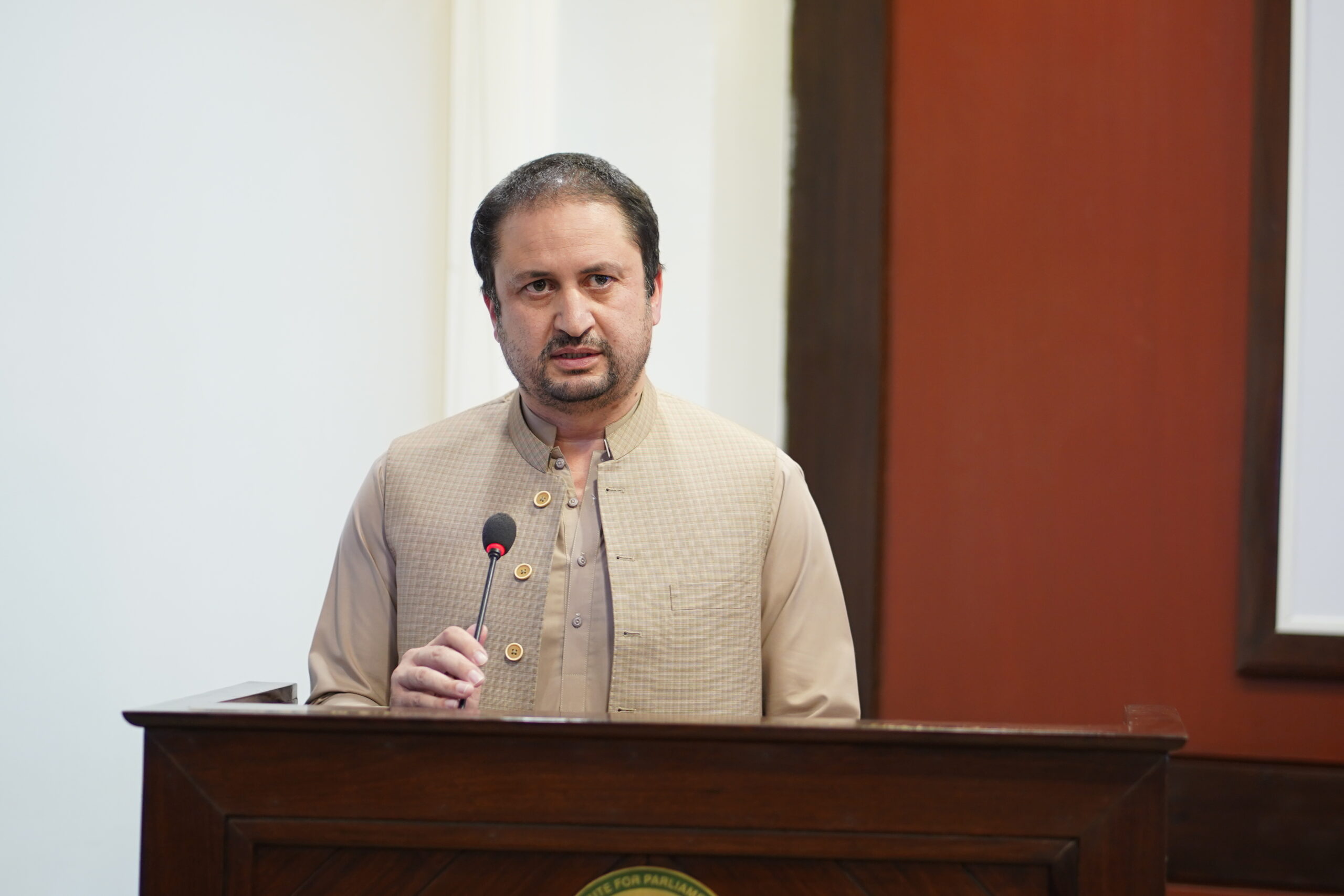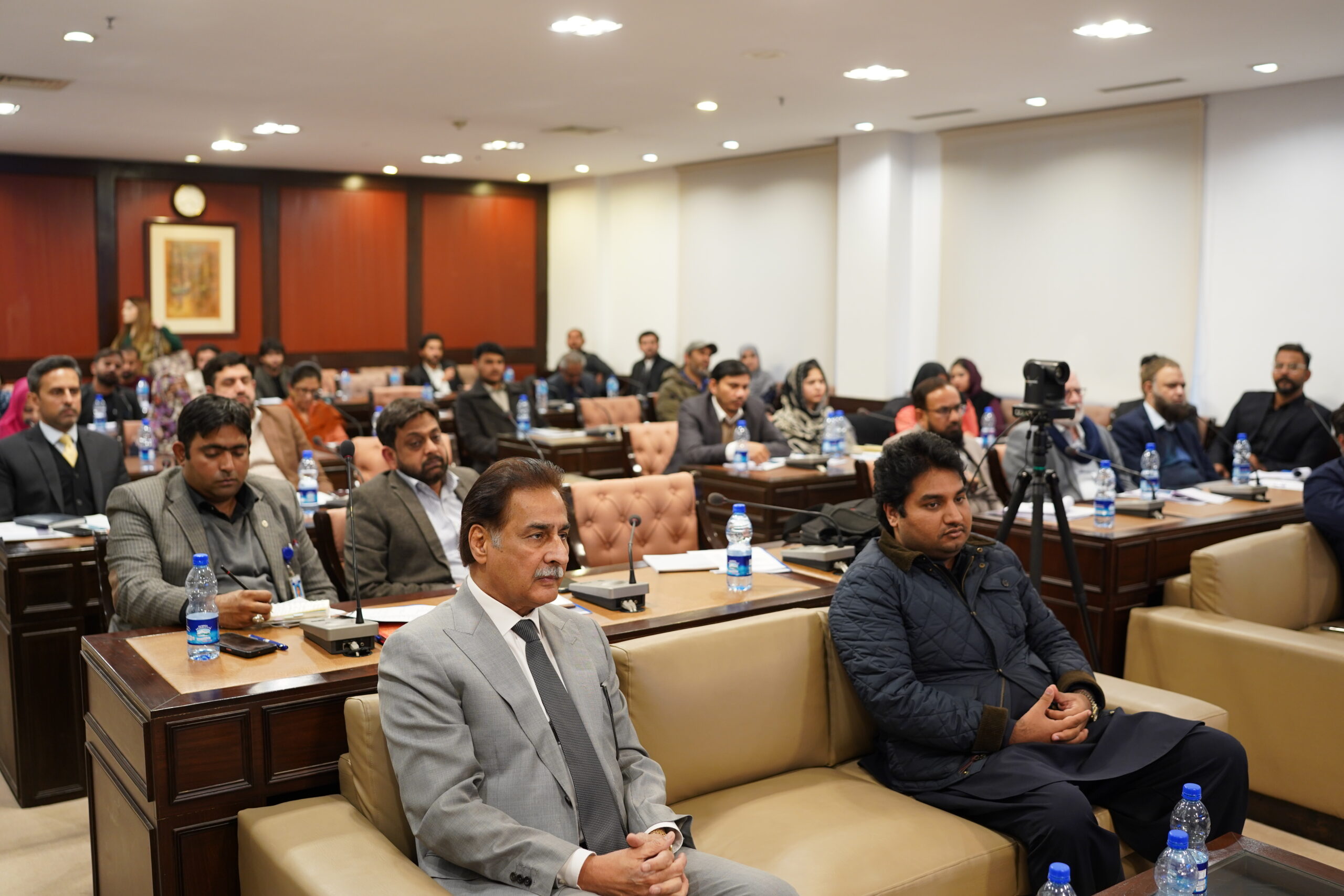Events
Date: 28th January, 2025A Parliamentary Seminar on the Decentralization of Electricity Transmission
- Concept Note
- Press Release
- Images
Energy wheeling refers to the transmission of electricity from a power generator to a consumer through a third-party-owned transmission infrastructure and under a specific power purchase agreement. It has gained significant attention in Pakistan due to its potential to reduce electricity’s consumer end prices, increase the share of renewable energy, provide reliable power transmission and distribution and promote private sector participation in the power sector. It stems from Competitive Trading Bilateral Contract Markets (CTBCM) which could arguably make Pakistan’s power sector more competitive than it is now.National Electric Power Regulatory Authority (NEPRA) introduced regulations in 2016 to facilitate wheeling, allowing electricity generators to sell their excess electricity to the national grid. These rules also permit consumers to purchase electricity directly from a very limited number of private power producers. One prominent example of an energy project where wheeling has been allowed is Pehur Hydropower Project. Developed by the Pakhtunkhwa Energy Development Organization (PEDO) and located in Swabi, it has the capacity to generate 18 megawatts. It started its commercial operation in March 2010 but the wheeling charges to be paid to the national grid by the power project were determined by NEPRA only in January 2021.

